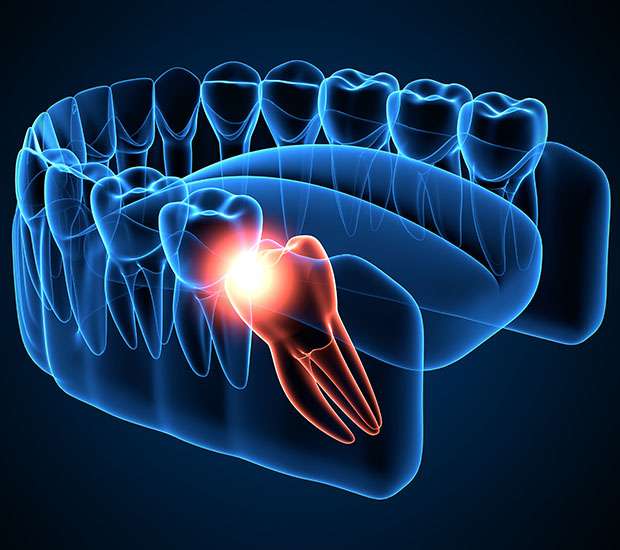Wisdom teeth often cause problems depending on where wisdom teeth are located and the timing of their development. They are located in the back of the mouth and commonly emerge in the late teens or early twenties. Because jaws often lack the space to accommodate wisdom teeth, they may grow misaligned or become impacted. Extraction of wisdom teeth can help prevent or resolve these issues. Here, we will tell you all about wisdom teeth removal. So, if you are dealing with wisdom teeth, this blog post is for you.
What is Wisdom Tooth Extraction?
Wisdom tooth extraction is the act of removing one or more wisdom teeth to prevent dental issues or relieve current complications. These teeth are typically in the upper and lower back corners of the mouth, and if they emerge misaligned, they may press against other teeth and cause pain, infection, or shifting of other teeth.
You need wisdom teeth removal if you want to:
- Prevent overcrowding.
- Avoid impacted teeth issues.
- Stop infections.

Wisdom Tooth Extraction Procedure
Wisdom tooth removal is performed through the following steps:
- Our dentists or oral surgeons begin by cleaning the area around the wisdom tooth to reduce infection risk.
- Then, they numb the specific area by local anesthesia. In more complex cases, such as impacted teeth or anxious patients, they may use sedation options like nitrous oxide or IV sedation.
- When the area is fully numb, our dentists make a small incision in the gum tissue above the wisdom tooth.
- For impacted teeth (teeth that haven’t fully erupted), our dental professional takes additional steps to carefully remove any obstructing bone around the tooth.
- Next, our dentist gently loosens the tooth from the surrounding ligaments and bone by using specialized dental instruments.
- If the tooth is impacted or difficult to remove in one piece, our dentist divides it into smaller sections.
- Our dental professional lifts each section of the tooth carefully from the socket and ensures all fragments are removed.
- After the tooth is removed, they use stitches to close the incision.
- Finally, our dentists place a gauze over the extraction site.
How Long Does a Wisdom Tooth Extraction Take?
Typical wisdom tooth extraction lasts between 20 and 40 minutes. However, it takes longer if you need additional steps. The time needed for wisdom tooth extraction based on the kind of surgery:
- Simple extraction takes about 20-30 minutes. In this surgery, your tooth is accessible and easy to remove.
- Partially impacted tooth removal takes around 45 minutes. This kind of surgery involves additional steps like lifting gum tissue to reach the tooth.
- Fully impacted tooth extraction takes 60-90 minutes. This process may require cutting the bone and sectioning the tooth into smaller pieces for safe removal.
Wisdom Tooth Extraction Recovery
The recovery time for wisdom tooth extraction depends on the complexity of the extraction and your aftercare:
- Swelling and pain of non-surgical extractions, where the tooth is fully erupted, often subsides within 3-4 days. You can return to normal activities quicker.
- For simple extraction(Erupted Tooth), recovery is usually quicker, and you heal within 3-5 days. Mild tenderness and slight swelling are normal, and they reduce within a few days. Soft tissue generally heals in about one week.
- For moderate complexity (Partially Impacted Tooth), initial recovery may take around 5-7 days. Swelling and soreness pain diminishes over a week. Soft tissue usually heals in 1-2 weeks.
- For complex extraction (Fully Impacted Tooth or Bone Removal Required), recovery may take 7-10 days or longer. Swelling and tenderness might last for the first week, with soft tissue healing typically taking two weeks. Complete healing, including bone tissue, can take several months.
Wisdom Tooth Extraction Aftercare
You need to take proper care to recover faster. Here, we will tell you how to take proper care of your teeth after surgery:
- Bite down on gauze for 30-45 minutes to control bleeding.
- Use ice packs for 15-20 minutes to reduce swelling.
- Take pain relievers if you are in pain.
- Have soft foods like yogurt, and avoid hot or crunchy foods.
- Drink water, but avoid straws to prevent dry sockets.
- Rinse with warm salt water 24 hours, especially after meals.
- Brush carefully (Avoid the extraction site)
- Avoid smoking, vaping, or alcohol for at least 72 hours.
- Limit physical activity to prevent swelling and bleeding.
- Call your dentist if you experience intense pain, prolonged bleeding, or fever.
Don’t forget that if you don’t take proper care of your teeth after surgery, you will experience side effects of wisdom tooth extraction, including:
- Pain and Swelling
- Bleeding and Bruising
- Dry Socket
- Infection
- Nerve Injury
- Jaw Stiffness and Trismus
- Sinus Issues
When to Stop Using Gauze After Wisdom Tooth Extraction?
You should keep gauze in place for 30-45 minutes to form a clot. Change gauze if bleeding continues, usually within the first 1-2 hours after surgery.
How Many Hours Can I Eat After Wisdom Tooth Extraction?
You can eat soft foods like yogurt or soup after a few hours. Avoid chewing near the surgical site until it begins healing, typically 24-48 hours.
When Can I Smoke After Wisdom Tooth Extraction?
You better avoid smoking for at least 72 hours. Smoking too soon can dislodge the blood clot, and lead to a dry socket, which delays healing.
How to Stop Bleeding After Wisdom Tooth Extraction?
If bleeding continues after the initial gauze application, replace it with new gauze and apply pressure for 30-45 minutes.
Jaw Pain After Wisdom Tooth Extraction – What to Do?
Mild jaw pain is common, especially after a complex extraction. You better take over-the-counter pain relief, cold compresses, and prescribed medications to manage discomfort during recovery.
How Long Should I Take Painkillers After Wisdom Tooth Extraction?
Most patients feel less pain with over-the-counter painkillers for the first few days. Typically, pain decreases significantly within 48 hours and reduces the need for medication.
When to Call the Doctor?
You should contact your dentist after wisdom tooth extraction if you experience any problems after surgery. These complications include persistent bleeding, severe or worsening pain, swelling that doesn’t reduce, and any signs of infection.
Wisdom Tooth Extraction Cost
The cost of wisdom tooth extraction varies based on the complexity of the extraction, the need for anesthesia, and insurance coverage. Kirkland Dental Excellence provides free consultations to offer cost estimates and payment options. Call us at (425) 827-2003 to learn the price based on your conditions.
Wisdom Tooth Extraction Near Me in Washington
Kirkland Dental Excellence professionals offer experienced care for wisdom tooth extractions in a comfortable setting, prioritizing patient health and comfort at each step. We do our best to make the process smooth and stress-free for our patients. If you live in Washington and seek professional dental services, make an online appointment for free consultation.
FAQs
Yes, but be gentle and avoid the extraction site for the first 24 hours to prevent irritation.
Pain often peaks on the second or third day, gradually easing with proper care and pain management.
Avoid alcohol for at least 48 hours to protect the healing site.
Patients are given anesthesia to prevent pain during extraction; mild discomfort afterward can be managed with medication.
Avoid soda for 3-4 days as the carbonation may disrupt the blood clot.
Wait 24 hours before rinsing gently with a saltwater solution; avoid strong mouthwash to protect the clot.

